Simon Chen and colleagues found that a reduction in locus-coeruleus noradrenaline neuromodulatory signaling contributes to altered motor learning in 16p11.2 deletion mice.
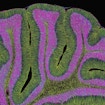
Grants awarded through this request for applications are intended to advance the understanding of autism spectrum disorder through analyses of human postmortem brain tissue donated to the Autism BrainNet collection.
The annual budget is between $300,000 and $1,000,000, inclusive of 20 percent indirect costs, for a period of two (2) years.
We encourage proposals from multiple investigators only when such collaborations are well justified by the expected benefits to the proposal. For collaborative proposals, the annual budget can exceed the project cap stated above but should not exceed a total of $2,000,000 inclusive of 20 percent indirect costs.
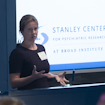
The International Society for Autism Research (INSAR) Virtual 2021 Annual Meeting was held May 3–7, 2021. A selection of presentations by SFARI Investigators, SFARI staff and collaborators are highlighted here. Virtual content is available online until early June 2021 (for registered meeting participants only).
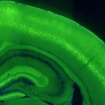
Because of the coronavirus pandemic, SFARI ran the fall 2020 science meeting virtually in a series of six weekly webinars, beginning on October 2, 2020. SFARI investigators presented their latest findings in autism research, ranging from autism genetics, through molecular mechanisms and neural circuits, to clinical insights.

SFARI Investigator Aakanksha Singhvi discusses her lab’s work and how the Bridge to Independence Award helped in her transition to working as an assistant professor.
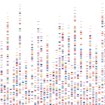
SFARI is pleased to announce that eight Director Awards were awarded in 2020. These projects include, but are not limited to, studies that aim to enhance existing SFARI-sponsored cohorts and collections, generate novel resources (e.g., animal models) and studies whose goals are beyond the focus of existing SFARI request for applications.
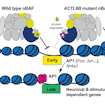
Gerald Crabtree, Joseph Gleeson and colleagues defined a new recessive form of ASD caused by mutations in ACTL6B, part of the BAF complex, which regulates activity-responsive transcription in resting neurons.
- Previous Page
- Viewing
- Next Page